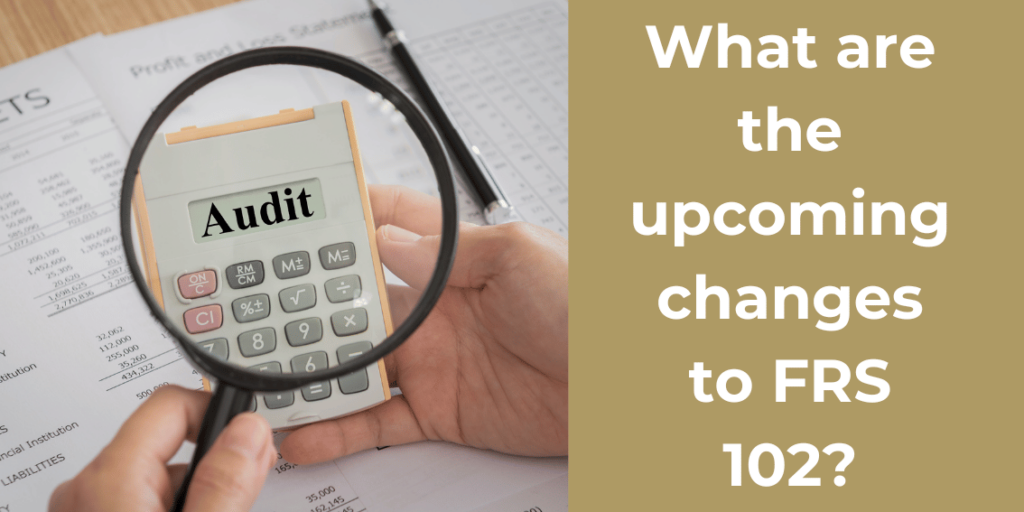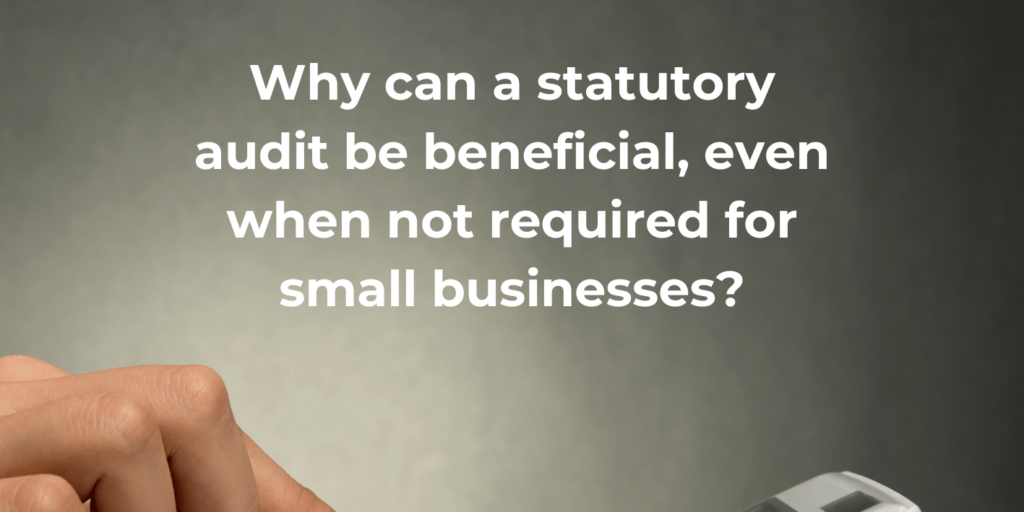Audit Thresholds, Requirements and Exemptions

As a business grows, it requires more responsibility from management to keep it in line with UK regulations. One important aspect is that of auditing.
However, not every business is required to arrange an audit, and it is important to know whether or not your business is exempt. This article covers exactly that, explaining audit thresholds, requirements, and exemptions for select businesses.
What is an audit?
An audit is an examination of a business’s financial statements, including their profit and loss, balance sheet and other statements and notes. The primary goal of an audit is to verify that a business’s financial statements are true and fair and materially represent their performance and position.
This process is entirely independent of the business itself, carried out by a third-party auditor to assess the reliability and accuracy of all financial records. Once completed, the auditor assesses how accurate the financial statements are, and if there are any discrepancies.
Click here for more information.
What is the audit threshold?
In the UK, to meet the audit threshold, businesses need to meet certain financial criteria. If so, they are then legally required to undergo a statutory audit.
This threshold depends on a company’s annual turnover, total value of their assets and number of employees. Therefore, a business must undergo a statutory audit if it has at least two of the following:
- More than £10,200,000 in annual turnover
- Total assets worth more than £5,100,000
- Average number of employees over 50.
Are small companies exempt from audits?
Typically, small businesses do not need to undergo audits as they are not legally compulsory. However, this does not mean that they are always exempt.
If a business has a shareholder that owns 10% or more of the company, then the shareholder can legally request a statutory audit. It does not matter if the company does not meet the criteria listed above.
A shareholder can request an audit in writing and send it to the company’s registered office. However, it must arrive at least one month before the end of the financial year.
A company may also need to undergo an audit if its articles of association require it. However, if the business owner and shareholders agree, this can be changed.
How often does a company need an audit?
Businesses in the UK that meet the audit threshold must carry out a statutory audit once a year, typically after the financial year end date has passed. For example, if your company’s financial year ends on 30 April, then you can begin your audit from 1 May.
A business must carry out an audit once a year for every year they are not exempt. if a business becomes a small company that no longer meets the audit threshold, they still need to complete an audit for that year.However, if they remain a small company for the next year, they can then apply for exemption.
How long does a company have to complete an audit?
Once a company’s financial year ends, they then have 9 months to complete a statutory audit. After completion, they must then submit their audited accounts to Companies House.
How long does it take to complete an audit?
Audit times depend on the size of the business and its complexity. Typically, from start to finish, you can expect an audit to take upwards of three months.
Audit exemption
Aside from the criteria discussed above, there are also certain other exemptions from audit which a company can claim. The criteria relate to the nature and structure of the business and have been described below
Dormant Companies
Dormant companies, which have had no significant accounting transactions during a financial year, are generally exempt from audits.
A company is dormant if it:
- Is not trading; and,
- Does not have any other income (e.g. investments).
Companies that have been dormant since formation will not need to submit any financial data to Companies House. However, businesses that have only been dormant after the end of the previous financial year will not be eligible for exemption for the current year.
Certain charities and non-profit companies:
Some smaller charities and non-profit companies may be exempt from audits as governed by the Charities Act, but this can depend on their specific structure and funding.
The audit threshold for charities is much lower than that of other companies. Charities that meet either of the following two criteria are legally required to undergo an audit:
- Annual income of over £1 million; or,
- Gross income of over £250,000, and total asset worth of over £3.26 million (after liabilities).
Moreover, a charity must undertake an audit if the charity’s governors or funders impose it.
What type of companies must have an audit?
Regardless of if a company fails to meet the audit threshold, or falls under one of the categories listed above, there are certain businesses in the UK that must have an audit. A company must undergo a mandatory audit if the business is:
- a public company (unless it is dormant)
- a subsidiary company (unless it qualifies for exemption)
- an authorised insurance company
- Involved with carrying out insurance market activity
- Involved with banking
- an issuer of electronic money
- a MiFID investment firm (Markets in Financial Instruments Directive)
- a UCITS management company (Undertakings for Collective Investment in Transferable Securities)
- corporate body with shares traded on a regulated market
- a funder of a master trust pensions scheme
- a special register body
- a pensions or labour relations body
If you are unsure whether your business requires an audit, speak to one of our expert chartered accountants by calling 0800 031 8454.
Applying for exemption
If a business believes that it is exempt for auditing, they should include a letter of exemption in their financial statements. The following sheet should be included on the balance sheet of your accounts if you’re using an audit exemption:
“For the year ending [your company’s year end date], the company was entitled to exemption from audit under section 477 of the Companies Act 2006 relating to small companies. The members have not required the company to obtain an audit of its accounts for the year in question in accordance with section 476. The directors acknowledge their responsibilities for complying with the requirements of the Act with respect to accounting records and the preparation of accounts. These accounts have been prepared in accordance with the provisions applicable to companies subject to the small companies’ regime.“
Keeping track of finances
Keeping track of financial records is crucial for ensuring as smooth an audit as possible. Even if a business is exempt from an audit, they should still keep their financial records in order in the event that Companies House enforces one. Primary documents that a business should prepare for an audit include the following:
- All accounting records
- Business structure diagram
- Yearly bank statements for all relevant bank accounts
- Breakdown of all balance sheet amounts with invoices, receipts, or other forms of evidence
- Aged debtors’ and creditors’ listing
- Wage records and P11D returns
- Stock reports
- All hire purchase and leasing agreements
- Any VAT returns and workings
Failing to keep clear track of financial records will make the audit process longer than it has to be. Businesses should ensure that they have internal processes in place to collate the information for the auditor.
Get help with audits and exemptions
Auditing can seem like a daunting process to undertake, but it is a necessary part of running a business in the UK. It does not have to be a stressful process, and that is where we come in.
If this is your first time meeting the audit threshold, or you are exploring the possibility of exemption, our team is here to help. Our statutory audit service is tailored to the needs of each individual client, ensuring you meet the statutory requirements expected of you.
Contact our team today by calling 0800 031 8454.








